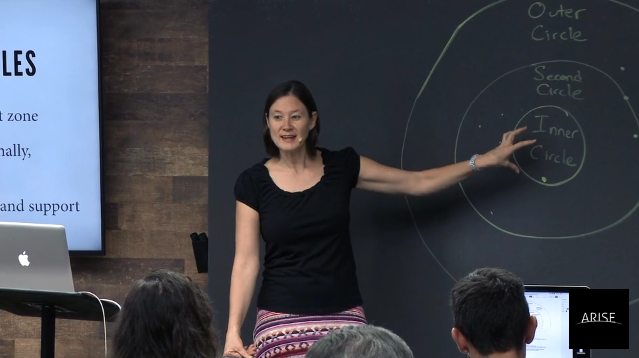
A summary of a presentation at ARISE by Nicole Parker
Jesus had three circles of relationships: The outer circle, the second circle, and the inner circle. His outer circle included enemies and people who were curious but had no interest in believing in Him. His outer circle also included people He invested in for a brief time and then moved on, like with the Samaritan woman and the demoniacs. Your outer circle consists of casual acquaintances we may interact with in public settings.
In Jesus' second circle, He had the 70 and the 12 disciples. Like Jesus, your second circle consists of people who you can reach out to, share God's love, and disciple so that they can share God's love with others. This circle consists of people who you decide to invest in for God's kingdom. Then there's your inner circle, which consists of people you can trust enough to lean on for support. For Jesus, this included Peter, James, John, Mary Magdalene, Martha, Lazarus, and Mary (Jesus' mother). It takes time to develop trust and because of limited time, you can't have too many people in your inner circle.
Your outer circle challenges you to get out of your comfort zone. Your second circle is about investing in others intentionally, it involves dealing with their personal issues, and it helps you grow. The inner circle is where people can confront you and encourage you to believe what God says about you instead of worrying what other people think. We need inner circle people to help keep our eyes on Jesus.
Jesus provides us with an example of what to do when people fail us. He kept Peter in His inner circle even though He knew that he would deny Him three times. When we are loving even to those who fail us, we show them what God is like: Loving others without expecting love in return. But sometimes people don't want you to invest in them, so you'll have to let them go. This doesn't mean you don't love them, but if you don't let them go and let them reap what they sow, you prevent them from being able to repent.
Also see, Setting Healthy Boundaries
Also see, Overcoming the fear of man
No comments:
Post a Comment